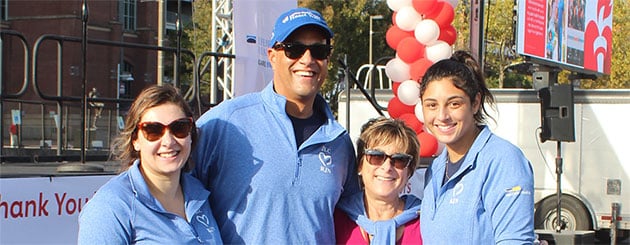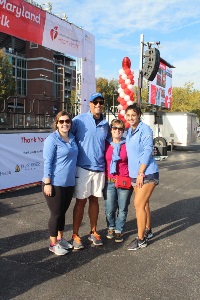
Bradley Chambers
Senior Vice President & COO Baltimore Region, MedStar Health
Chair, MHA Governance Committee
MHA: Why did you pursue a career in health care?
BC: By the time I was born, my late father was already a beloved obstetrician in Baltimore, so I literally grew up in healthcare. He was old-school and would often make his rounds after hours or on weekends, with me just a few years old, going along with him. His compassion and interactions with patients, and with hospital staff, were inviting. Throughout the years, I saw that hospitals were uniquely vital to our communities. I came to love the caring culture of the hospitals he took me to. It was a natural evolution for me take interest in the ever-evolving field of healthcare.
MHA: If you weren’t in health care, what would you do?
BC: I have never understated the impact of those whom I’ve considered mentors along the journey of my career. Because of that, once I was in leadership roles, I too tried to shape and mentor up-and-coming talent. I appreciate the process of challenging individuals and helping them find the best of themselves. I think being an educator, or a general manager for a professional sports team, might have been gratifying alternative careers.
MHA: What hospital program makes the most impact on your community?
BC: I honestly am very proud of several of the healthcare transformation programs we have implemented in Baltimore. Our MVP (multi-visit patient) program for instance, identifies patients who are frequent visitors to our emergency departments to determine a root cause for those visits, to intervene before they need us. The results have been very positive in cutting back ER wait times and readmissions.
Since about 10% of Marylanders have diabetes, it was critically important for us to take a closer look at the problem and find ways to lower the numbers. Among our strategies is the Food RX program, which with our community partners, has been significantly impactful in changing the health trajectory of diabetes patients. Specifically, we know the program has helped eliminate barriers to healthy food for some of our vulnerable patients, expanded our referrals and screenings for social determinants of health, and addressed issues related to health disparities. We’ve seen reductions in medications and dosages, as well as emergency visits.
MHA: When you aren’t working, where can we find you?
BC: I’m fortunate to have a year-round escape to my beach house on the Delaware shore. I especially love being there during the off-season months when it is empty and quiet. I have always found comfort in being on the water or beside an ocean.

BC: Recently, I have been doing a lot of reading on artificial intelligence. I am equally fascinated by the brilliance of it, the possible applications, and the ethics and potential long-term consequences of AI. Most people know I love the fall season when horror movies are out, and I admit that some of the classics are my guilty pleasure. But I also enjoy films with a historical context, such as Oppenheimer, which I recently watched twice.